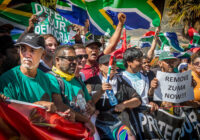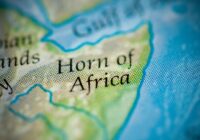Gambian security chiefs have put their professionalism and loyalty to the constitution in question.
The relevance of the military and other security institutions in a democratic state has never been questioned. It is a concern that was raised 2,500 years ago by Plato and subsequent scholars. Principles of representative democracy guarantee political control of the armed and security forces. The concept of popular sovereignty established the supremacy of civilian institutions over military and other security institutions.
In a democratic dispensation, relations between society and the armed and security forces are expected to be a two-way process. In a constitutional democracy, both the state and the armed and security forces should be protected by the constitution from potential dangers of both military men with political desires and politicians with military ambitions. These are the two dangers that Yahya Jammeh, his Alliance for Patriotic and Reorientation and Construction (APRC) party and the security apparatus in The Gambia refused to understand.
The chief of defence staff (CDS) of The Gambia, General Ousman Badjie, and other security chiefs of the erstwhile Jammeh government, organized a press conference on January 21, where they attempted to justify their actions during and after The Gambia’s presidential election, which was held on December 1, 2016. Badjie stated that the deployments of armed and security forces in the streets of the Banjul after the election was a calculated move designed to tackle possible invasion. This justification is nothing more than an effort to cover the failed attempt to subvert the will of the citizens of The Gambia as expressed at the polls. Thanks to the Economic Community of West African States (ECOWAS) intervention forces, they shamefully backed off. The question the CDS and his team failed to clarify was: Which “invasion” were they referring to and by whom?
Incompetence and Deception
Badjie, his deputy and other security chiefs blamed the media for the refugee situation in order to cover up their own lapses and incompetence. They also painted the camp commanders of Youndum and Bakau barracks, who met ECOWAS forces at The Gambia-Senegalese border, as the bad guys. These statements are unfortunate, disturbing, unrealistic and at the best deceptive.
It is an open secret that security chiefs of The Gambia have put their professionalism and loyalty to the constitution of the land in question by siding with former President Jammeh and APRC party leadership to gradually transform The Gambia armed and security forces into Jammeh’s personal militia, having participated in perpetuation of tyranny and oppression of innocent Gambians for decades. The security forces should have supported the people and the president-elect, and insisted that Jammeh and the APRC vacate the seat of power.
But they did not. And so, the new leadership needs to take this seriously and separate the grains from the chaff as early as possible.
The failure of Badjie and his deputy to unequivocally demonstrate in words and deed that they were ready to defend the will of the people and their continued detention of military officers suspected of being loyalist of the incoming administration frustrated the commanders of the two infantry battalions of Yundum and Bakau. They unilaterally withdrew their men from the streets at the end of Jammeh’s mandate and joined ECOWAS to launch an attack to remove Jammeh by force. This gallant move by the two commanders was one of the game-changers in the transfer of power.
The fact that the ECOWAS intervention forces were at the Gambian-Senegalese border and the news of the defection of the camp commanders of the two most infantry battalions terrified and forced Jammeh, his loyalists and the top leadership of the military to call for renewed mediation. Jammeh was determined to stay in power despite losing the election because he was supported by the military chiefs. This is obvious in the topsy-turvy attitude of General Badjie in his declaration of loyalty to the incoming administration even after midnight of January 18, and the inaction of his deputy.
Jammeh’s call for help was definitely not in the interest of the nation, but that of his selfish ends as his personal life was seriously threatened. The leadership of The Gambia’s armed and security forces, Jammeh and the APRC together betrayed the trust of ordinary Gambians. They would not have backed down without the threat from a superior force like ECOWAS.
The willingness of the leadership of The Gambian Armed Forces (GAF) to ensure Jammeh continues to stay in power even after clearly losing the election was confirmed in a Facebook post by Omar S. Saidykhan, a captain in the GAF until November 2013, who was also the chief instructor of the only army training school in the country. After watching the press conference organized by Badjie and other security forces on January 21, 2017, Saidykhan posted on his Facebook page describing the officers and soldiers who joined ECOWAS as “heroes and gallant soldiers.” He said their defection to join ECOWAS troops was the reason Jammeh eventually fled into exile.
Saidykhan referred to the inaction of the deputy CDS as a big disappointment to most officers and soldiers who looked up to him as a professional officer, who in a situation like this would provide the leadership to act swiftly and in the best interest of the nation, but instead continued to be indecisive throughout the political impasse. Saidykhan accused both Badjie and his deputy of refusing to speak up clearly when it was necessary to do so in the best interest of The Gambia, and to “end the arresting and detention of officers and soldiers under their command by Jammeh’s close guards, simply because they were suspected of shifting allegiance to the president-elect Barrow.”
He confirmed that the two commanders and their men, after the top command of the armed forces had failed to show professional leadership, had no choice but to take matters in their own hands and join the ECOWAS intervention forces in order to launch an assault to forcefully oust Jammeh and his loyalist from the seat of government.
In turn, Badjie and his team accused the army commanders of desertion and ordered them to join with the Senegalese forces and never return to The Gambia.
The question is: Why did they not immediately shift allegiance at midnight on January 19, when Adama Barrow was due to take office? Why did it take so long to support the new government and demonstrate patriotic leadership to the armed and security forces when it was badly needed to unite the nation?
The Right Thing at the Right Time
It is time that truth be told to those in power in order to help them do the right thing and at the right time. Had the security forces demonstrated leadership, they would have saved ECOWAS millions of dollars that is being spent on this intervention, prevented the disgraced Jammeh from allegedly stealing millions more and prevented the fleeing of Gambians into Senegal and Guinea.
Security chiefs of The Gambia have conspired with Jammeh and the APRC to subject the people to unforgivable stress and international humiliation. The country’s security forces have failed the Gambian people, and they need to admit their mistakes and apologize. The accusation levied by Badjie against the two camp commanders and their men was nothing but a ploy to tar the reputation of soldiers who performed their duty.
The new administration needs to conduct a thorough investigation and purge the army of men like Badjie and his security team. What the country needs now is a professional armed and security forces that pays firm allegiance to the state instead of a political establishment. With ECOWAS due to stay in The Gambia for the time being, there is a need to request for its support to ensure there is the right security leadership with the right skills in order to avoid the repeat of what happened in Jammeh’s era.
The hope is that the coalition leadership does not fall for this unrealistic blame-shifting game and cheap propaganda of portraying themselves as clean and others as dirty. This is not how to save one’s face. They have not mastered the art yet—they need to rehearse to convince us. The act, indeed, is a misplaced and a naive show of loyalty to one’s state, after they have in broad daylight betrayed it and its people when it needed support the most.
Now that Gambians have emerged victorious, there is an attempt to divide us. The people of The Gambia refused to accept it and hope the new leadership does not fall for the divisive rhetoric by those who have let down the country and its people in time of crisis.
The views expressed in this article are the author’s own and do not necessarily reflect Fair Observer’s editorial policy.
Photo Credit: mtcurado
Support Fair Observer
We rely on your support for our independence, diversity and quality.
For more than 10 years, Fair Observer has been free, fair and independent. No billionaire owns us, no advertisers control us. We are a reader-supported nonprofit. Unlike many other publications, we keep our content free for readers regardless of where they live or whether they can afford to pay. We have no paywalls and no ads.
In the post-truth era of fake news, echo chambers and filter bubbles, we publish a plurality of perspectives from around the world. Anyone can publish with us, but everyone goes through a rigorous editorial process. So, you get fact-checked, well-reasoned content instead of noise.
We publish 2,500+ voices from 90+ countries. We also conduct education and training programs
on subjects ranging from digital media and journalism to writing and critical thinking. This
doesn’t come cheap. Servers, editors, trainers and web developers cost
money.
Please consider supporting us on a regular basis as a recurring donor or a
sustaining member.
Will you support FO’s journalism?
We rely on your support for our independence, diversity and quality.







